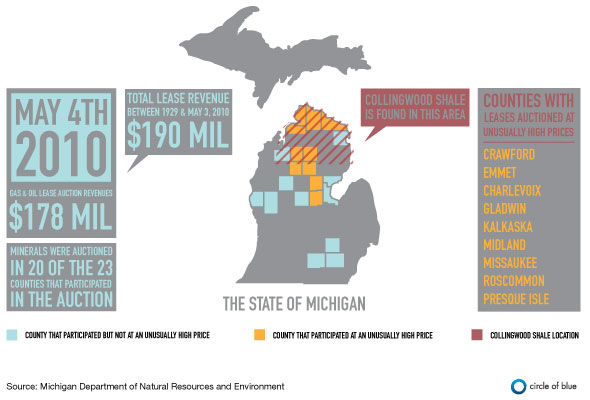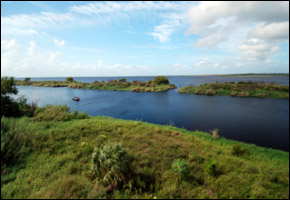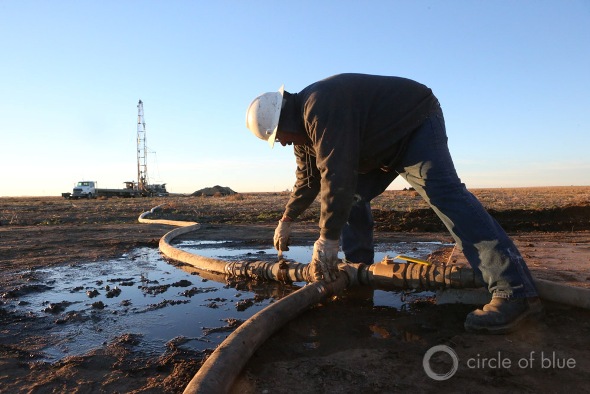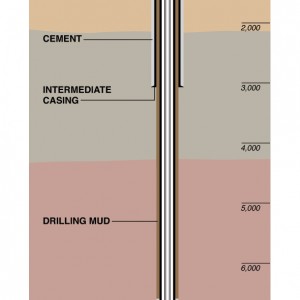Infographic: Michigan Mineral Rights
Michigan looks to be the next big play in exploring and producing natural gas from deep shale formations. A single prodigious gas well in Missaukee County, drilled nearly two miles deep in the Collingwood Shale, prompted a record auction in May of state-owned mineral rights to 120,000 acres in 20 counties that netted $178 million.
As leases turn into tangible exploration and production, hydraulic fracturing comes into play. “Fracking” requires millions of gallons of water mixed with thousands of pounds of chemicals to be injected into the well at intense pressure. The practice is raising pollution and water supply concerns across the country. The U.S. Environmental Protection Agency is investing nearly $2 million assess the risks. Roughly 5.5 million gallons of fresh water were pumped from the aquifer and used to fracture the Missaukee County well.
Under the Michigan Natural Resources and Environmental Protection Act Part 327, gas and oil companies are exempt from disclosing water withdrawals. Michigan is holding another auction of state-owned mineral on October 26, 2010.

Graphic by Kalin Wood, a Circle of Blue graphic designer. With contribution from Aubrey Ann Parker, a Circle of Blue reporter and data analyst. Reach them at circleofblue.org/contact.










Really great article. The next auction will be an interesting one, however the link I clicked took me to a 404 error. I’ll do some research!
Again a great article on Michigan’s natural gas shale play. It will be interesting to see how this goes in the months to come. Also the graphic is great!